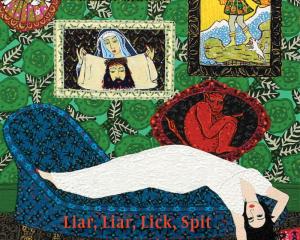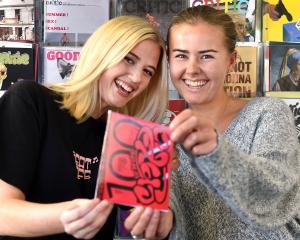
Many readers, like me, may consider that McCann has packed far too much detail in her heart-rending account of Madeleine's disappearance from a ground-floor holiday apartment bedroom in Praia da Luz, Portugal, and the subsequent publicity that resulted in the girl's abduction receiving world-wide attention for months on end.
But if McCann's book is suffused with a mother's despair and emotion, that is understandable. Certainly, she is to be commended for an ability to communicate that many seasoned writers could well envy.
The tragedy of Madeleine's abduction received wall-to-wall media coverage throughout the world.
Much of it was the stuff of journalistic fiction, as well as accusatory comment.
Madeleine, almost 4, was on holiday with her English GP mother, Kate, cardiologist father, Gerry, and younger twin brother and sister, Sean and Amelie.
On the night of her disappearance, the children had been put to bed.
McCann and her husband were at a restaurant "only 30 to 45 seconds away". Their apartment was "largely visible" from the restaurant.
Gerry made the first check of the apartment just before 9.05pm; Kate the second check at 10pm (after a dinner companion went to the apartment 30 minutes earlier and reported "all quiet!"), to discover that Madeleine was gone. Jane Tanner, a member of the McCanns' holiday group, reported that about 9.15pm she saw a man in the vicinity carrying a child who appeared to be asleep.
On May 9, a Norwegian woman, Mari Olli, had seen a little girl who looked like Madeleine at a petrol station on the outskirts of Marrakesh. She heard the blonde child of about 4, who looked pale and tired, ask the man in English, "Can we see Mummy soon?", to which he replied, "soon". It wasn't until Olli and her husband were back at their home on the Costa del Sol the next evening that they learned of Madeleine's disappearance.
One hundred days later, McCann and her husband were under suspicion by the Portuguese police, an inferior and investigatively slow-moving lot, who suggested Madeleine had been murdered. Much worse was to follow as the Portuguese police pressed on relentlessly in their endeavours to fix responsibility on the English couple. Eventually, the pair were deemed to be innocent of wrongdoing.
Lurid newspaper stories about their lifestyle were churned out and a continuing series of supposed revelatory scoops became the norm.
Both the Daily Express and the Daily Star acknowledged three stories were untrue, and paid 550,000 into Madeleine's Fund that enables the couple to continue the search for their daughter. The royalties from sales of this book will be given to the fund.
McCann, a woman of strong Catholic faith, kept a diary which enabled her to produce a book that lacks no detail.
Judicious editing of her too repetitive bursts of emotion would have profited the reader, without detracting from the sadness of a continuing family tragedy.
The book includes many colour photographs and, commendably, an excellent index.
• Clarke Isaacs is a former chief of staff of the Otago Daily Times.












